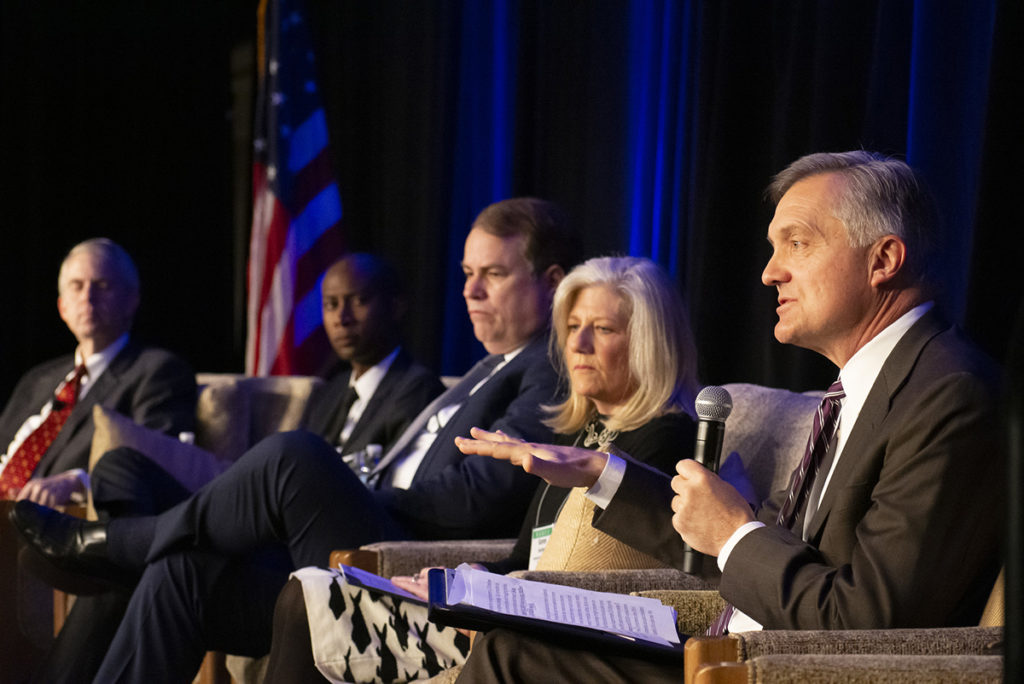
The best approach to helping economically challenged communities is to have “a bias toward innovation.”
That was one of NRECA CEO Jim Matheson’s messages during a Feb. 12 panel discussion at the National Association of Regulatory Utility Commissioner’s Winter Policy Summit in Washington, D.C.
Electric cooperatives “serve a lot of underserved people,” he said. “We need innovation to do it. We need flexibility to do it right.”
Matheson spotlighted innovation adopted by several electric co-ops:
- Cherryland Electric Cooperative in Grawn, Michigan, joined state and local agencies to provide low-income members with bill credits toward the co-op’s community solar program.
- North Dakota Association of RECs partnered with state telecom co-ops to set up a rural development center that runs a food bank, provides access to loans and helped form a cooperative child care program.
- Roanoke Electric Cooperative in Aulander, North Carolina, with half its territory defined as “persistent poverty,” is offering modest charging subscriptions to electric vehicles owners plus no upfront costs to install in-home EV chargers.
- Western Farmers Electric Cooperative and its member distribution co-ops in Oklahoma are working with investor-owned utilities and others to build the nation’s most comprehensive public EV charging network.
Matheson’s message to state utility regulators on providing rural broadband access to underserved communities was simple: Talk to electric co-op leaders within their borders. More than 100 are deploying retail broadband to rural communities; many others are studying the feasibility.
Whether a state regulates them or not, “co-ops can be an important voice,” Matheson said.
“Co-ops can give insight at the state level in terms of current laws and regulations, and how they either assist or impede” rural broadband development.
For example, easements can be a hurdle to rural broadband. Co-ops could be prohibited from stringing fiber-optic cable on their poles for retail internet access or face litigation after the fact.
Matheson also underscored the importance of economic development for rural areas, but he noted those efforts may be for naught without broadband internet access.
“If you don’t have broadband, you aren’t going to get economic development,” he said. “It’s that fundamental.”
Listen to a recent podcast episode on Advancing Energy Access for All, a new NRECA initiative that focuses on co-op efforts to improve the economic health of local communities:
Cathy Cash is a staff writer at NRECA.